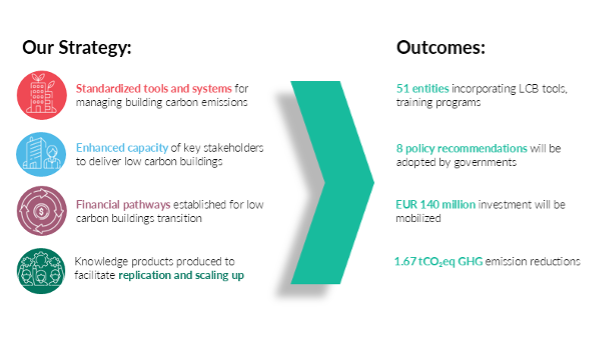
Buildings are significant contributors to GHG emissions, making it imperative to reduce their energy demand and carbon footprints to meet Nationally Determined Contributions (NDC) targets. In Asia, high energy consumption and rising cooling demands from buildings propel governments to shift to bio-based materials, better design and efficient appliances.
The Asia Low Carbon Buildings Transition (ALCBT) Project seeks to significantly reduce GHG emissions by catalyzing nationwide transitions towards LCB in Cambodia, India, Indonesia, Thailand, and Vietnam. Through targeted interventions, the project equips public and private stakeholders with the technical, planning, and institutional tools needed to mainstream LCB practices, ensuring direct emission reductions by 2028.
By addressing key regulatory, capacity, and financing challenges, the project drives the adoption of sustainable building materials and operations, with a particular focus on reducing emissions from cooling systems.
(See the introductory video above)
By 2028, technical, planning, and institutional tools for LCB will be developed and successfully implemented by key public and private sector stakeholders in all project countries.

Partners
The 5-year project’s implementation is led by the Global Green Growth Institute in partnership with the ASEAN Centre for Energy (ACE), Energy Efficiency Services Limited (EESL), and HEAT International GmbH. It is supported by the Government of Germany through its Federal Ministry for Economic Affairs and Climate Action (BMWK) under the International Climate Initiatives.
